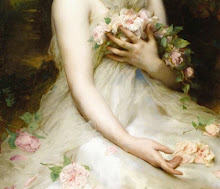Hi my name is Rachel and I am an obsessive list maker.
Ever since I was little I have loved making lists, from everything from my daily schedule, to chores to accomplish and even my “life plan.” I know you can’t really have a plan, but I have had one starting in eighth grade that details everything I want to accomplish in the future, especially my career. I won’t go into details, but you should know that it is VERY specific, and why yes I am slightly OCD as well. I think being OC and making lists kind of go hand in hand. So when Dr. Sexson gave us the assignment to make a list of everything in one room of our house I was thrilled!
The following list goes counter clockwise around my room when you are in the bed.
Side table
-journal
-lamp
-picture of small Portuguese girl I took in Lisbon and love!
-candles
-decorative boxes
-record player
-about 250 albums
-about 100 CDs
-too many movies to count (VHS and DVD. I refuse to part with my VHS player!)
Basket on floor
-Bon Appetite
-The New Yorker
-The only two magazines I have subscriptions to since I was 15. So there’s a lot of them!
Desk
-Edward Gorey Christmas cards
-bowl of candy (All bought at the Phillipsburg candy store!)
-laptop
-printer
-bills
-file
-CLEP exam review materials
-GRE materials
-printer paper
-information on grad school(s) applying to
Lamp
Cat scratching post
Copy of Caravaggio’s, The Calling of Saint. Matthew (One of my favorite painters! Especially his Biblical paintings. Renaissance painters capture the human hand magnificently.)
Stack of books for classes this semester
Bookcase
-top shelf contains Clive Barker, Persepolis, Kundera, Nabokov, Dickens, James Baldwin, Scottish Short Stories, Proust, Jhumpa Lahiri, Bronte, Vonnegut and more.
-next shelf contains Dreiser, Gogol, Wells, Marlowe, Edward Gorey, Tim Burton and more.
-third shelf contains Proust, C.S. Lewis, Goethe, Byatt, Oates, Ballard, Plath, Maugham, Camus, Roth, Joyce, Potok, Folwes, Orwell, Machiavelli and more.
-forth shelf contains Flannery O’Connor, Thomas Mann, Rand, Helprin, Gibran, Stoker, Lawrence, Goethe and more.
Chest of Drawers (on top The Flowers of Evil by Baudelaire and Picnic, Lightning by Collins)
Hanging on wall two antique French posters
Old Italian perfume box from manufacturer with 25 samples of perfumes all different
Door
Evening in the Park ( a copper etching but I can’t remember the artist, he lives in Seattle.)
Door to bathroom
Sculpture for wall that holds candles
Bookcase
-on top book with all The New Yorker cartoons, my stuffed sheep named Babaee(sp?),which is Farsi for sheep.
-next down are books from past classes, several other books by Edward Gorey, poetry by Elizabeth Barrett Browning, Gabriel Garcia Marquez, Ovid, Capote, Betty Smith, Chopin, Tom Robbins, Mildred Walker and more.
-All other shelves books from past classes and collections of poetry and famous love letters between authors and those they love (poetry includes the Romantics, Langston Hughes, ect.)
Copy of Andrew Wyeth’s Master Bedroom hangs over my bed
So I know it’s long, but once I start I can’t stop. So enjoy if you have the patience!



